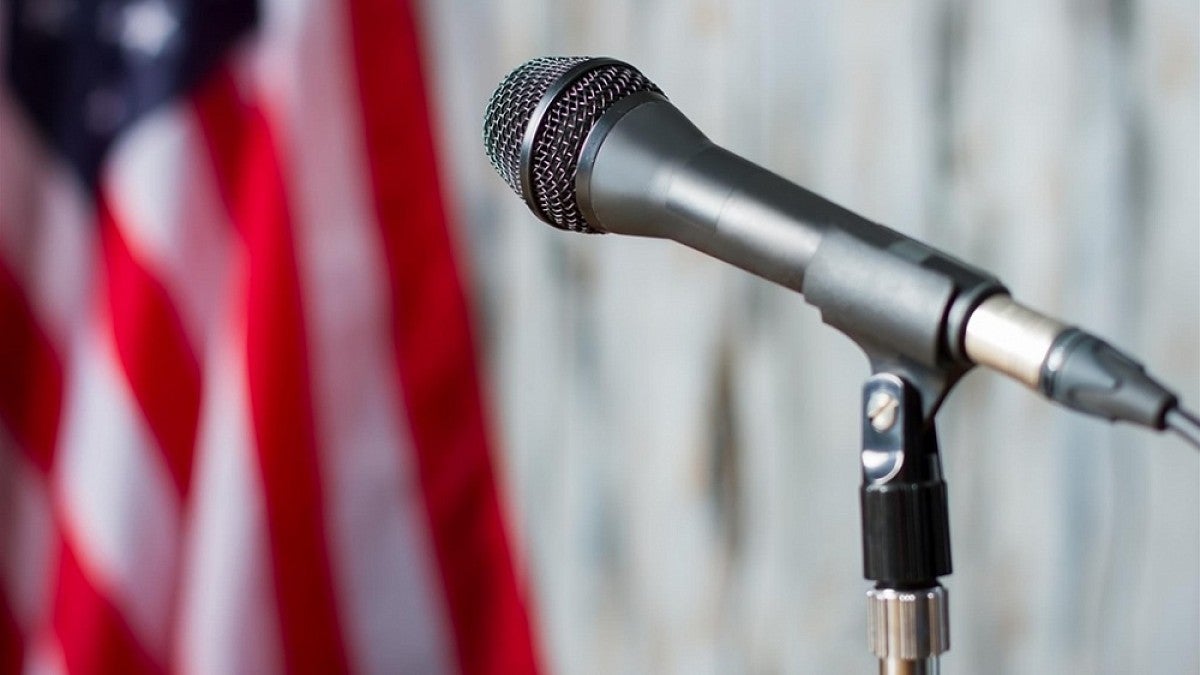The UO School of Journalism and Communication will offer a Zoom webinar series this fall with faculty members sharing their expertise about the role of journalism in covering politics, in particular this year’s election.
Associate professor of journalism Nicole Dahmen and Shirley Papé Chair in Emerging Media and Director of Journalism Seth Lewis co-host the series, “Journalism, Politics, and the 2020 Election.”
"At a time when politics has become so divisive and debates seem to devolve so easily into chaos,” Lewis said, "we hope these conversations can serve an important function — for students and the entire University of Oregon community as well as for people around the state — in convening dialogue around a shared set of research insights, historical lessons and practical solutions.”
The first discussion was Monday, Oct. 5, with the Associate Dean for Portland Regina Lawrence and assistant professor Brent Walth giving an overview of journalistic coverage of the 2020 election. The remaining four panels will be held each Monday from 5 to 6 p.m., with the first 45 minutes as a conversation and the last 15 minutes as a Q&A session with the audience.
“As a public research university, we take our public outreach mission very seriously, and it’s important as the School of Journalism and Communication that we’re helping to facilitate dialogue across the state,” Dahmen said. “Our idea here is to help facilitate a conversation that’s going to be accessible to all Oregonians and help them make sense of what’s happening with journalism and politics today.”
On Monday, Oct. 12, they will discuss “Sports, Journalism and 2020 Social Activism,” with panelists associate professor Troy Elias, senior instructor Lori Shontz and UO student and former Ducks football player Jevon Holland. The panels continue until Nov. 9, when the series will present a “Journalism and the 2020 Election” debrief.
Dahmen said the nation might not even know who the next president is by the last panel, given the high number of people voting by mail. Election night won’t be like it has been in the past, with news stations broadcasting results as they come in over the course of the evening.
“Normally we would be doing this series in-person, but obviously COVID-19 has changed all of that,” she said. “At the SOJC, we see ourselves as a gathering place to convene and talk about the critical issues facing our society today and how the media are responding to and adapting to and covering these issues.”
Those interested in attending the webinar series register once to attend all of the panels. It is not too late to register even though the first event has already been held. People can sign up at any time to follow the remaining discussions.
Lewis said that using the Zoom format is almost better than having the discussions in-person because it reaches people where they are. If audience members cannot watch the Zoom meeting live, all of the sessions are recorded and published.
“The great benefit of the webinar format is that we can take these important conversations and the learnings around them and share them with everyone,” Lewis said. “We’re really fortunate at SOJC to have a broad array of faculty expertise around all kinds of issues associated with media, politics and technology.”
—By Joanna Mann, School of Journalism and Communication


